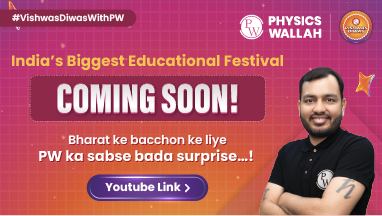Whenever you visit any search engine, let’s say Google, to search for something, there’s always a reason behind it. Whether you want to find information, compare some options, buy something or just visit a particular website. The user’s search for a particular query is keyword intent.
If you want your content to show up for the right search queries and reach the right audience, then it is essential that you understand the user intent properly. But, the question that comes to our mind is, how to actually know keyword intent? This is what we will discuss today. This blog will help you understand the concept of keyword intent, including its importance and how you can identify the intent of the user.
What Is Keyword Intent?
Keyword intent is the reason why a user types or searches for a specific term in search engines. It helps you to understand the goal of the user and what kind of results they are expecting.
For example, if a person searches for “buy iPhone 15”, then the keyword intent is transactional because the user probably wants to make a purchase. Whereas, if a person searches for “iPhone 15 vs iPhone 14”, then the intent is commercial because the motive is to compare two things.
Read More: Keyword Mapping: A Step-By-Step Guide To Better SEO In 2025
Why Is Keyword Intent Important In SEO?
If you correctly understand the keyword intent and create content, there are high chances that your content will reach the right audience and it will also increase your chances of ranking for the keywords you actually want to target because Google’s main goal is to answer the queries as effectively as possible and satisfy the user. Therefore, the result page for each query is different because Google shows pages that it thinks will help the users best in finding what they are looking for.
Can you tell what makes you believe that a piece of content is good or bad? A blog post can be good for one person and at the same time, it might not be relevant to the other person. It all depends on how well a piece of content can solve your query or help you.
Let’s understand this with the help of an example. One person searches for “What is SEO”? Here, the intent is informational because the user wants to gather information and know about what SEO is.
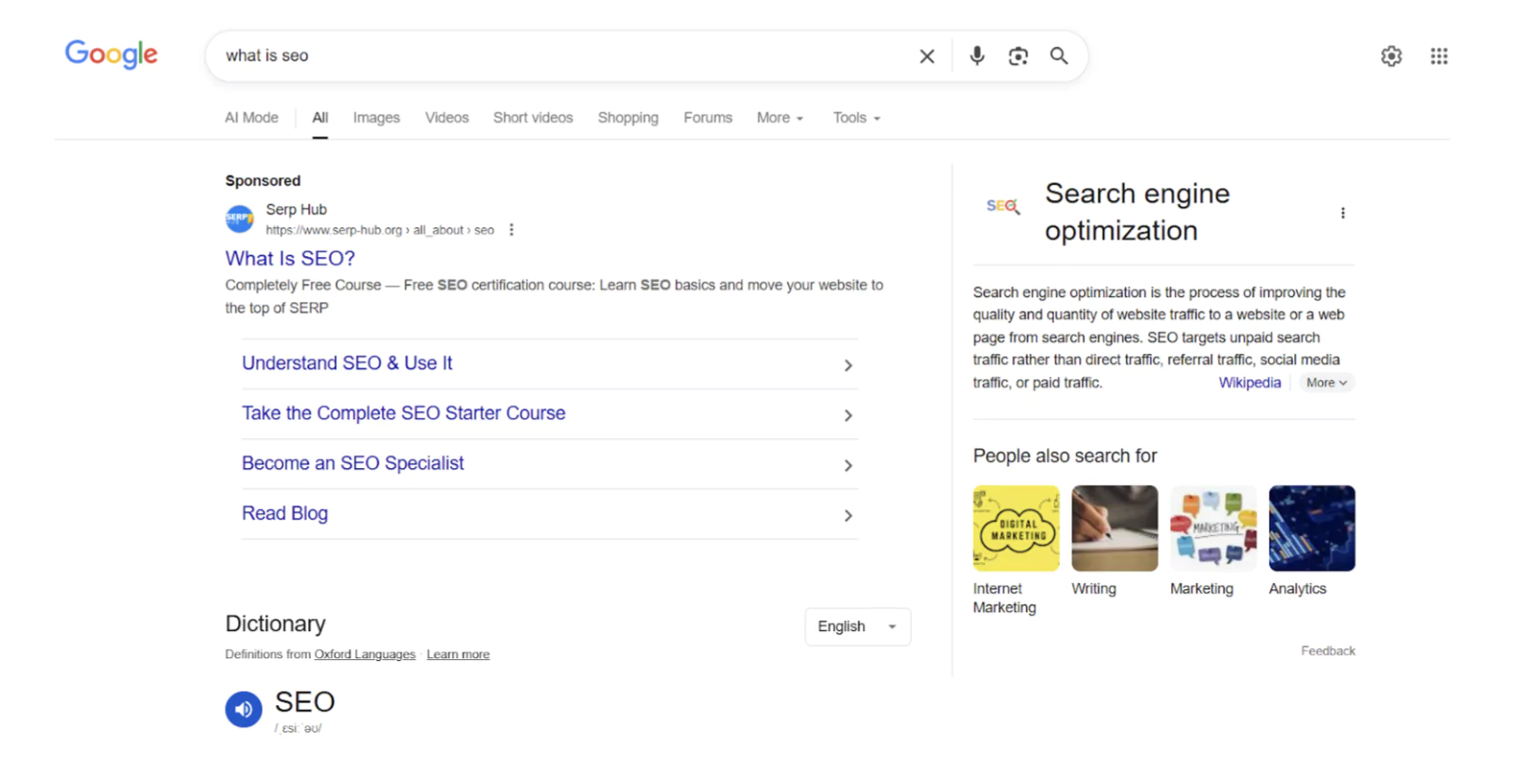
Another user searches for “best SEO tools“. Now, in this case, the intent is commercial because the user is doing research or comparing various tools before actually getting to a conclusion.
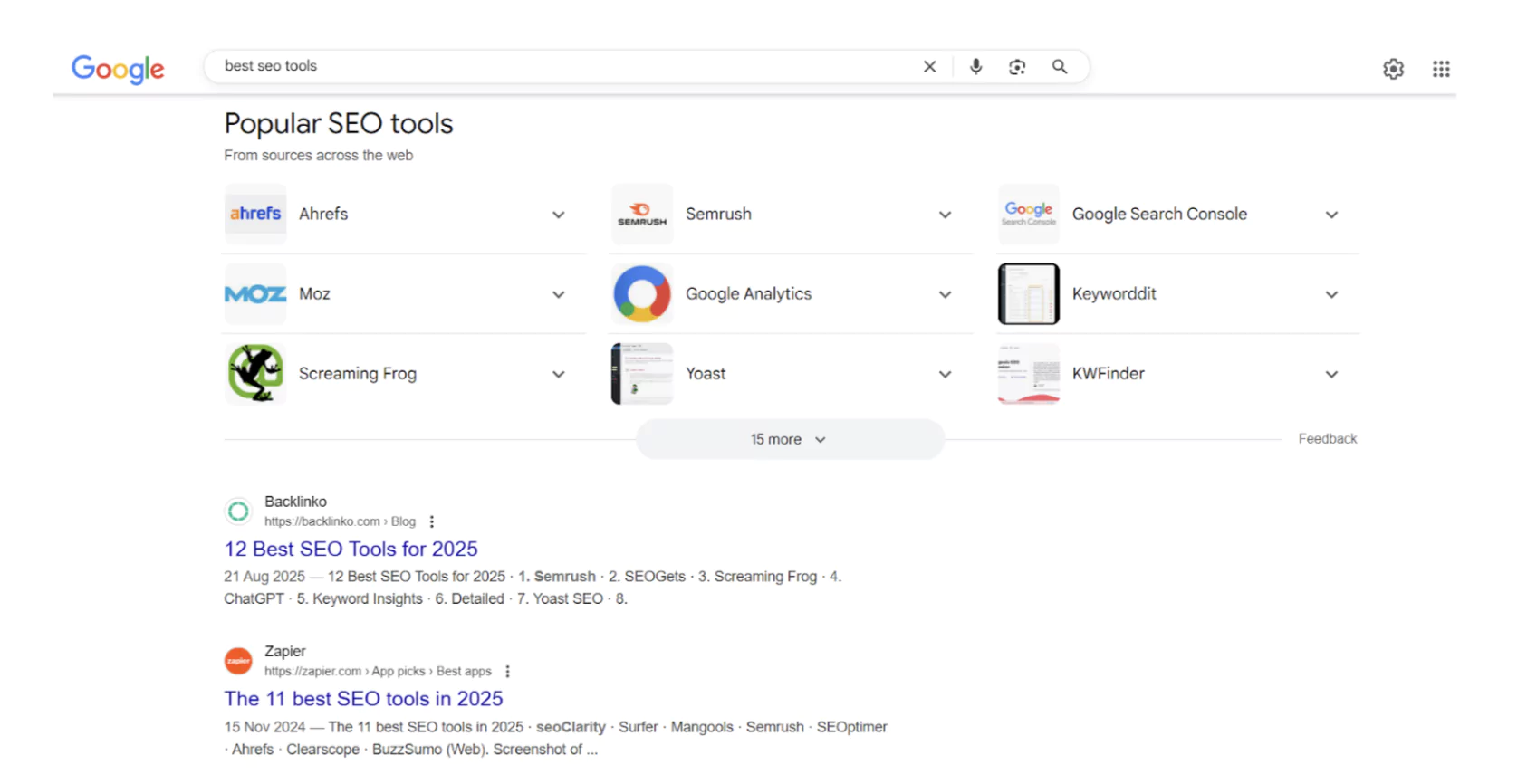 In the above images, you can see that the result pages for both the search queries are different, despite them being related.
In the above images, you can see that the result pages for both the search queries are different, despite them being related.
![]() Join Our Digital Marketing WhatsApp Channel
Join Our Digital Marketing WhatsApp Channel
What Are The 4 Types Of Keyword Intent?
There are 4 types of keyword intent or search intent, informational, navigational, commercial, and transactional, which tell you the reason behind a user’s search.
Some keywords also have more than one intent type. For example, the keyword “free online courses with certificates” can have an informational or commercial user intent. The users might want to compare various free courses, or they might be looking for an answer to a specific question.
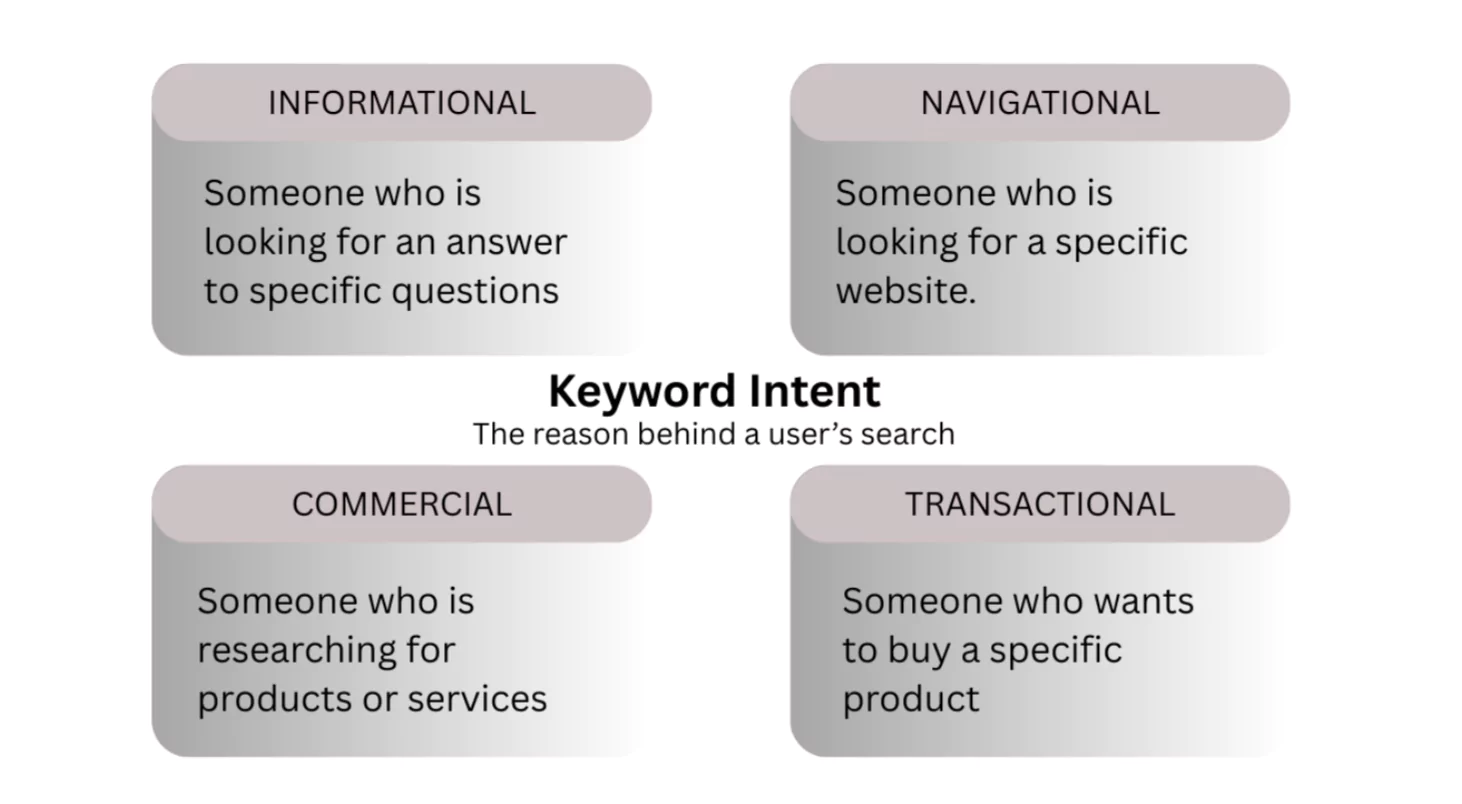
1. Informational Keyword Intent
Informational keywords are those keywords with people sites when they want to learn about something. These keywords are often in the form of questions and generally start with the following:
What, When, Where, and How
But you have to understand that informational keywords are not always questions, they can also look like normal statements that are searched with the intention of gathering information. For example, pizza recipe, time in London right now are also informational keywords.
Informational keywords have low buyer intent, but these can help you if you include them in your long blog posts and informational content.
Read More: What Are Branded Keywords? 11 Smart Ways To Use Them
2. Navigational Keyword Intent
Navigational keywords refer to those keywords that people search for when they want to visit a specific page or a website. Some of the examples of navigational keywords can be:
- Google Ads terms and conditions
- Instagram login
- YouTube etc.
In these cases, the users know exactly what they are looking for and which website they wish to visit. Navigational keywords also have low buyer intent, but they help to get conversions.
3. Commercial Keyword Intent
Commercial keywords are entered with the purpose of researching a comparison between various products before making a purchase. Let us have a look at some of the examples of commercial keywords.
- iPhone 15 vs iPhone 16
- best running shoes
- ChatGPT alternatives
The users in this case are not completely ready because they need a little more information before making the final decision but commercial keywords have high buyer intent, which means that there is a high chance users will make a purchase.
4. Transactional Keyword Intent
Transactional keywords are used when users are ready to make a purchase. For example,
- Buy shoes
- Chinese food court near me
Transactional keywords have the highest buyer intent. These can help you get revenue for your business. If you want to target transactional keywords, then you can create the following types of content:
- Coupon Pages
- Sign Up Pages
- Services Pages
- Free Trial Pages, etc.
How To Identify Keyword Intent?
There are multiple ways by which you can identify the keyword intent and tailor your content according to the intent of your audience for better rankings and reduced bounce rates. Have a look at some of the methods to find the correct keyword intent.
1. Manually Check Search Results
One of the best ways to identify the keyword intent is to search the term you want to target or you are already targeting, to see what other people have covered and what’s ranking on top for that particular search query.
Make sure to open a new incognito window in your browser to get accurate results without any personalization.
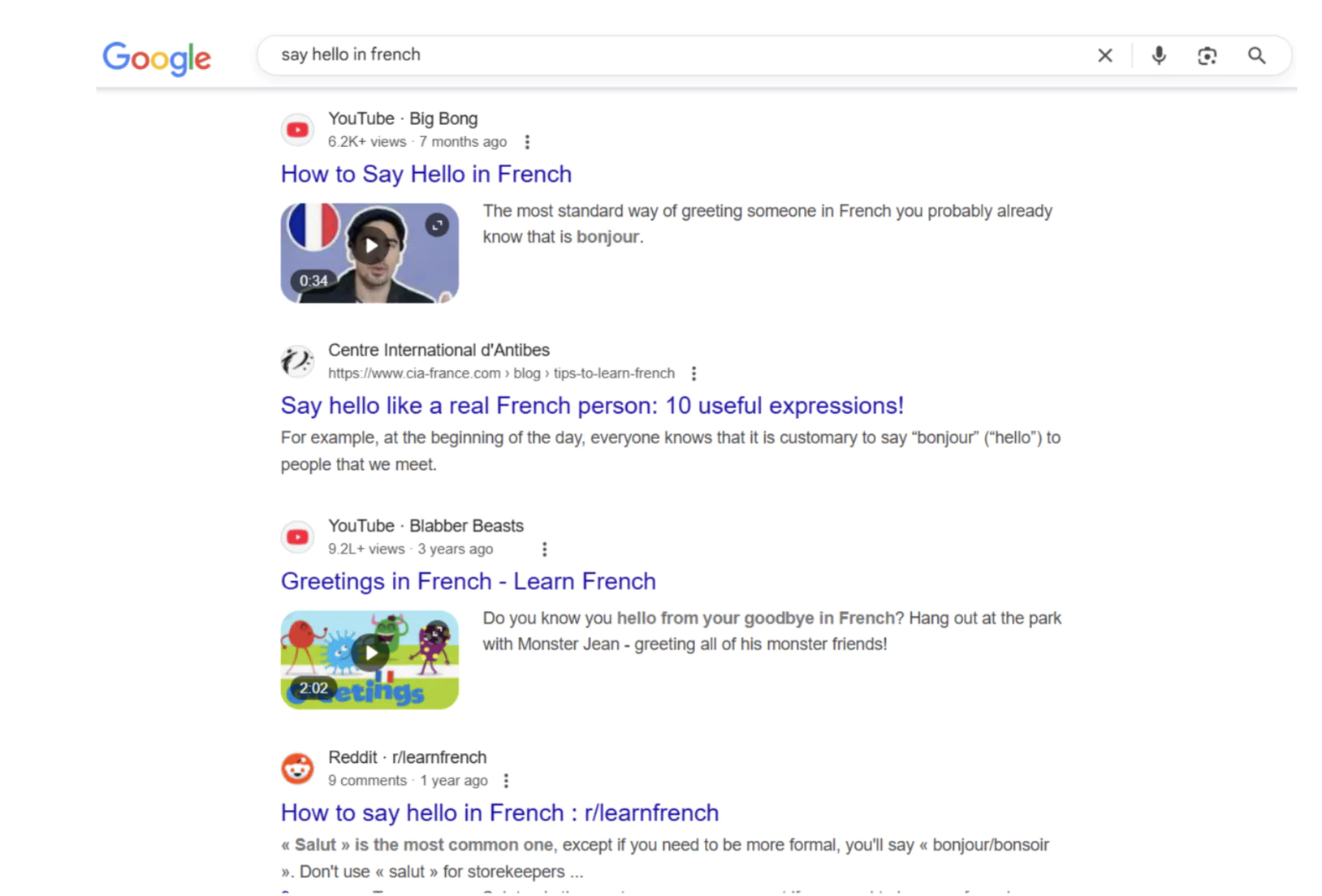
For example, if you search for “hello in french”, you can see in the above image how-to articles dominate the search engine results page, which clearly means that this keyword has informational intent. You can also look for the ‘related search queries’ and ‘people also ask’ questions to understand the intent better.
Use SEO tools
There are various SEO tools available in the market that can be used to identify keywords and their intent. You can enter the keyword you are already targeting or planning to target and you will be provided with all the details of the keyword, including the volume, keyword difficulty and most importantly, the intent.
If you want to find out for which keywords (with high buyer intent) you could rank, then you can enter a broad term related to your niche and get personalized results with the help of some free keyword research tools.
Some of the free tools include Semrush, Moz, etc. But the free version is only grants you limited searches after which you will be asked to wait till the next day or take the paid plan. Currently, there is a limit of up to three searches per day in Moz, after which you will have to subscribe to their premium plan to continue researching.
Read More: What is Keyword Prominence In SEO? Is It A Ranking Factor In 2025
Keyword Intent Example
Let’s understand keyword intent better with the help of an example. Let’s take a query ‘nike shoes’
- Informational intent: If the user searches for ‘Nike Shoes’, he might have the intention to know about different models of Nike shoes and their features.
- Commercial intent: ‘Nike shoes review’, now this is a search query with commercial intent because here the user is looking forward to comparing and researching more about the product.
- Transactional intent: If the person searches for ‘buy Nike shoes’, then it searched with the intention of making a purchase, and thus it has a transactional intent.
- Navigational intent: Nike is a brand in itself. When a person is searching for nike shoes, he is sure that he wants to visit the website of Nike, and thus the user’s intent might be navigational.
Learn Digital Marketing With PW Skills
Build your career in Digital Marketing with an AI-powered Digital Marketing Course offered by PW Skills. This course is suitable for newcomers, self learners, and business owners looking for digital growth of their business and building an online presence.
Get in-demand skills designed for today’s AI-driven landscape with optimised SEO, social media strategy, content creation, analytics, and more to build your career in digital marketing.
Looking for More?
- Get industry-led live sessions with professionals in digital marketing
- Build a fully job-optimised project portfolio which demonstrates your skills, and strengthen it with projects.
- Get opportunities for full-time jobs or freelance clients for different digital marketing tasks.
- Get personalised career assistance to prepare for interviews and land your dream job.
- Get industry-recognised certifications from PW Skills
- Enhance your job readiness with practical skills and expert career guidance.
Keyword Intent FAQs
Q1. Can one keyword have more than one intent type?
Ans: Yes. Many keywords have more than one intent type. For example, if someone searches for ‘iPhone 16 review’, the intent can be either commercial or informational.
It is possible that the user wants to compare different models and research, or the user must be just curious to know about the iPhone 16.
Q2. Should I only choose the keywords with high buyer intent?
Ans: Keywords with high buyer intent help you to get conversions and generate revenue, but ignoring other keywords won’t be a smart choice. As informational keywords might have low buyer intent, but they help to build trust and brand authority, which can also help in driving traffic over time.
Q3. Do user intent and keyword intent affect SEO ranking?
Ans: If you visit a site with the intention of gathering information but end up finding nothing informational or helpful, just CTAs guiding you to make a purchase, would you be satisfied? Would you visit that site again? Probably not. Similarly, if the user does not get the desired results, he/she might leave within seconds, which
(i) increases bounce rate
(ii) decreases your rankings
So yes, keyword intent impacts the SEO rankings. If your keyword intent doesn’t match the content you are providing, there are high chances of your content getting low or no rank.
Q4. How to choose the right keyword intent for my content?
Ans: If you want to choose the right keyword intent for your content, then you can start by analyzing what users are actually looking for when they search for a particular query (which you are targeting or planning to target). You can check out the top ranking pages for that keyword, check the type of content (blog, product page, review, etc), also understand what kind of information they are providing (understand the intent) and match your content type and intent with them.


